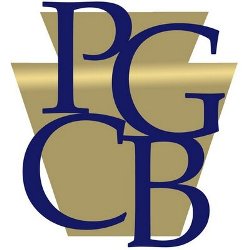Pennsylvania Receives Nine iGambling License Applications at Eleventh Hour

A total of nine Pennsylvania casinos have applied for online gaming licenses ahead of the July 16 close-of-business deadline set by the Pennsylvania Gaming Control Board (PGCB). These licenses are three-in-one packages that will allow the approved operators to offer poker, casino table games and slots through the internet to customers within the Keystone State.
Application Timeline
Near the end of October 2017, the Pennsylvania legislature passed H271, and Governor Tom Wolf signed it into law. This bill set up a licensing arrangement for legal online gaming in the state. With the stroke of the governor’s pen, Pennsylvania became the fourth state to legalize online betting products, after Delaware, New Jersey, and Nevada. After giving the Gaming Board some time to lay the initial groundwork, the applications process opened up on April 16, 2018.
Casinos had 90 days to apply for special, discounted licenses. Each of the three types of licenses normally incurs a one-time fee of $4 million apiece, leading to a total of $12 million for all three types of licenses. However, during this initial phase, all three licenses could be bundled together for $10 million all told. As the calendar moved forward into July, though, there were zero applications. Worried onlookers feared that the hefty fees involved had dissuaded gambling firms from seeking to do business in the state. However, three casinos stepped up to the plate and submitted their applications on Friday, July 13:
– Parx Casino (Bensalem)
– Mount Airy Casino Resort (Mount Pocono)
– Stadium Casino (Philadelphia) – not yet open
On Tuesday, it was revealed that six more casino organizations had sent in their applications on the last day to take advantage of the discounted rate, Monday, July 16:
– Harrah’s Philadelphia Casino and Racetrack (Chester)
– Hollywood Casino at Penn National Race Course (Grantville)
– Rivers Casino (Pittsburgh)
– Sands Casino Resort (Bethlehem)
– Sugarhouse Casino (Philadelphia)
– Valley Forge Casino (King of Prussia)
Remaining Licenses
The existing casino brands with physical presences in Pennsylvania get first dibs on the 13 licenses up for grabs. Now that nine of them have declared their interest, only four more remain. They are the Meadows Racetrack and Casino (Washington), Mohegan Sun (Wilkes-Barre), Presque Isle Downs and Casino (Erie), and Lady Luck Casino (Farmington). These groups can still obtain combination licenses covering the three permitted types of internet gaming, but they will have to pay the full $12 million rather being able to take advantage of the $10 million “early-bird special.”
It may be the case that the eligible firms that have not yet registered their applications intend to obtain licensure for just a couple or a single one of the forms of gaming available. Thus, they had no incentive to rush to complete the necessary paperwork because the discounted pricing only benefited companies that sought to gain approval for all three kinds of online gambling.
Another possibility is that the owners of these four casinos did the math and figured out that it would not be worthwhile to pursue internet gaming licensure at this time. The upfront costs are high, and furthermore, the tax rate on gross gaming revenue from slots is a punishing 54%. The rates for poker and table games are a more reasonable 16%. Slots tend to be the primary money makers for online casino sites, though, so some operators might base their decisions mostly on their expectation from this class of games.
Whatever the case may be, the four remaining Pennsylvania casinos have until Aug. 14 to apply for licenses. If there are any still unclaimed by that time, outside entities that don’t already operate within the borders of the state will have a chance to apply for them.
Another Type of Betting in the Works
The October 2017 legislation that established a licensed Pennsylvania internet gambling regime also contained provisions for allowing sports betting. However, these clauses were held in abeyance due to the federal prohibition on this type of activity. The Murphy v. NCAA Supreme Court decision in May did away with this ban on sports wagering, and so the path was made clear for the PGCB to formulate the regulations pertaining to licensing sportsbooks.
On May 31, the Board notified casino license holders that they could petition for permission to conduct sports betting services in the state. The application fee is $10 million, and the tax rate is 36 percent. On July 11, the application process for third-party software vendors and suppliers of sports betting-related products and services was opened.
There have not been any applications so far for PA-based sportsbooks. Still, when we consider that the nine online gaming applications were held back until almost the last minute, we could see the same occur with sports betting.
Online Poker Impact
Now that there are nine businesses looking to obtain licenses that would allow them to deal online poker, the entire U.S. regulated poker space may see a big boost when they eventually go live. The population of Pennsylvania is around 12.8 million: almost as high as the combined number of people living in the three other legalized online poker states. Assuming Pennsylvania joins the existing Multi State Internet Gaming Association (MSIGA) and shares its player traffic, we could see fuller cash game lobbies and more lucrative tournament guarantees in all four states.
As things stand, the only companies currently benefiting from the MSIGA is the 888/WSOP.com partnership, as they are the only operators with a presence in all three regulated markets. This has also placed other big players such as PartyPoker and PokerStars at a significant disadvantage, and given them little to no incentive to increase their marketing spend. Pennsylvania’s addition to the MSIGA at some stage in the future, however, would help even out the playing field by bringing about a more competitive market place.
In conclusion, Pennsylvania could play a significant role in transforming the online poker network, with all operators standing to gain from its greater traffic and overall viability. New Jersey generated $29.8 million in revenue during its first year of operation, and according to some estimates Pennsylvania could expect to collect around $41 million in Year One, with PokerStars playing a vital role in increasing online gambling revenues in the Keystone State.









